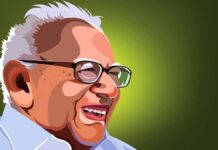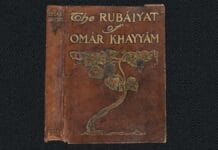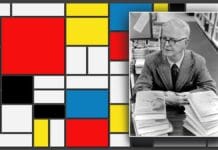Linguistics is commonly defined as a science of language. A scientific description is carried out systematically based on objectively verifying observations and within the framework of some general theory appropriate to the data. It is often said that linguistics, properly so-called, is of relatively recent origin and that the investigation of language as practised In Europe and America before the 19th century was subjective, speculative and unsystematic. Linguistics, as we know it today, was developed in conscious opposition to the more traditional approaches to studying language characteristic of earlier centuries. This deliberate break with the past was sharper and more definitive in America than Europe.
Characteristics of Modern Linguistics
The first of these, which is often regarded as a direct consequence of the scientific status of linguistics, is its autonomy or independence from other disciplines. Traditional grammar, which originated in Greece in the fifth century BC, has, since its beginning, been intimately connected with philosophy and literary criticism. When linguists claim ‘autonomy’ for their subject, he is asking to take a fresh and objective look at the language without a prior commitment to traditional ideas and without necessarily adopting the same point of view as philosophers, psychologists, literary critics or representatives of other disciplines. This does not mean that there is not, or should not be, any connection between linguistics and other disciplines concerned with language.
Reference has been made to the literary bias of traditional grammar. That bias, which derived from the fact that the earliest Western grammarians were mainly concerned with preserving and interpreting the texts of the classical Greek writers, manifested itself in various ways. Scholars concentrated on written language and ignored the difference between speech and writing.
By contrast, most linguists today take it as axiomatic that speech is primary and that the written language is secondary and derived from it: in other words, that sound is the medium in which language is ’embodied’ that written languages result from the transference of speech to a secondary visual medium. Every known language existed first as a spoken language, and thousands of languages have never or only very recently been committed to writing.
It should be emphasized that adherence to the principle of the importance of speech overwriting does not imply a lack of interest in, still less contempt for, written languages. Nor does it necessarily mean that the written language is wholly derivative. Traditional grammarians were more or less concerned with the standard literary language, and they tended to disregard or condemn as ‘incorrect’, more informal or colloquial usage both in speech and writing.
Also, they often need to realize that the standard language is from a historical point of view, merely that regional or social dialect that has acquired prestige and become the instrument of Administration, education and literature. Because of its widespread use by many people and for a broader range of activities, the standard language may have a richer vocabulary than any of the co-existent ‘sub-standard’ dialects, but it is not intrinsically more correct. The distinction between language and dialect is commonly drawn on political grounds.
Traditional grammar was developed based on Greek and Latin, and it was subsequently applied with minimal modifications and often uncritically to the description of a large number of other languages. But there are many languages which, in certain respects at least, are strikingly different in structure from Latin, Greek and the more familiar languages of Europe and Asia.
One of the principal aims of modern linguistics has, therefore, been to construct a theory of grammar that is more general than the traditional theory – one that is appropriate for the description of all human languages and is not biased in favour of those languages which are similar in their grammatical structure to Greek and Latin.
It should also be mentioned that linguistics does not support those who believe a fundamental difference exists between ‘civilized’ and ‘primitive’ languages. The vocabulary of a language will, of course, reflect the characteristic pursuits and interests of the society which uses it. The vocabulary of one language cannot be described as richer or poorer than the vocabulary of some other language in any absolute sense. Every language has a sufficiently rich vocabulary for expressing all the critical distinctions in the society using it. We cannot, therefore, say that one language is more primitive or more advanced than another.

All human societies of which we know speak languages of roughly equal complexity. The differences in the grammatical structure that we find between languages worldwide are such that they cannot be correlated with the cultural development of the people speaking them and cannot be used as evidence for constructing an evolutionary theory of human language.
What are the features of human languages distinguish them from the systems of communication used by other species? Two particularly striking properties of human language may be mentioned here. The first of these is the duality of structure.
Every language so far investigated has two levels of grammatical structure. There is, first of all, what we make all the ‘primary’, or syntactic, level of analysis, at which sentences can be represented as combinations of meaningful units: we will call these words. There is also a ‘secondary’, or phonological, level at which sentences can be represented as combinations of units that are themselves without meaning and serve to identify the ‘primary’ units. The ‘secondary’ units of language are sounds or phonemes.
If we take as an example the sentence, He went to London; we can say that sentence is composed of four words and that the first of these ‘primary’ units is identified by the combination of the ‘secondary’ units H and e, the second of the primary units by the combination w, e, n and t and so on.
Granted that every language manifests the property of duality of structure, we may expect that the description or grammar of every language will consist of three interrelated parts. The part which accounts for the regularities governing the combination of words is syntax. It uses syntactic rules; for example, we specify that He went to London; by contrast, with went to he London, is a grammatical sentence. The part of grammar that describes the meaning of words and sentences is semantics. The part of grammar that deals with the sounds and their permissible combinations is phonology. Thus, ‘grammar’ refers to the whole systematic description of life, including phonology, semantics, and syntax.
The second general property of human language is its creativity or ‘open-mindedness’. By this, it means the capacity that all native speakers of a language have to produce and understand an indefinitely large number of sentences that they have never heard before and which may never have been uttered by anyone.
The native speaker’s ‘creative’ command of his language is, in normal circumstances, unconscious and unreflecting. He is generally unaware of applying grammatical rules or systematic principles of formation when constructing new sentences or sentences he has previously encountered. And yet, the sentences that he utters will generally be accepted by other native speakers of the language as correct and will be understood by them. This creative command of language is unique to human beings: it is species-specific. Systems of communication employed by other species than man are not ‘open-ended’ in the same way.
Modern linguistics claims to be more scientific and more general than traditional grammar. It assumes that the ‘natural’ medium for language expression is sound -as produced by the speech organs -and those written languages are derived from speech. The grammar of any language will comprise at least the following three interrelated parts: syntax, semantics and phonology, and it should, among other things, account for the ability native speakers have to produce and understand an indefinitely large number of ‘new’ sentences.
The father of modern linguistics, Noam Chomsky, holds Kerala in particular regard. Recently, Kerala started a conversation on development. Titled ‘Kerala Dialogue’, it aims to bring together leading thinkers, policy-makers, professionals, scientists and the general public to a shared space where they could rethink and reimagine development for a world disrupted by the COVID-19 pandemic. This nonagenarian was a part of the inaugural episode of this series. We Keralites are indeed lucky to have him in.






























